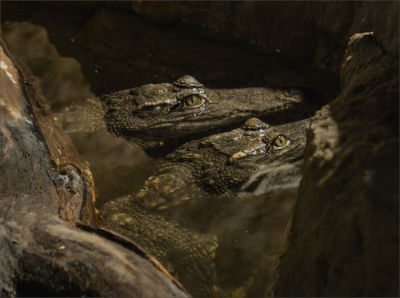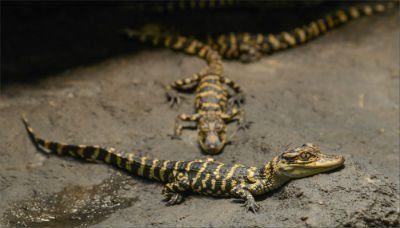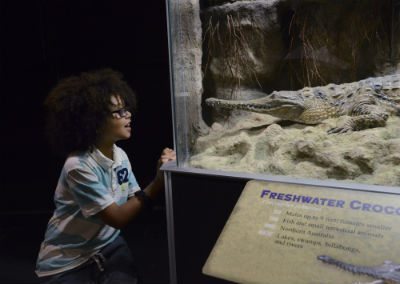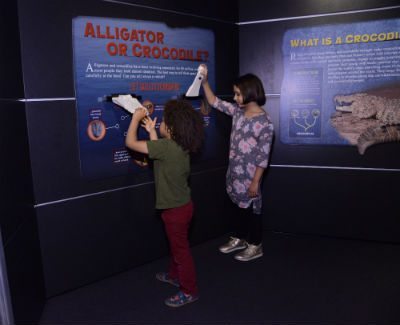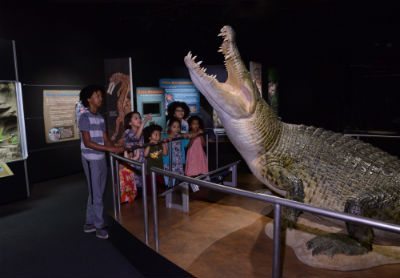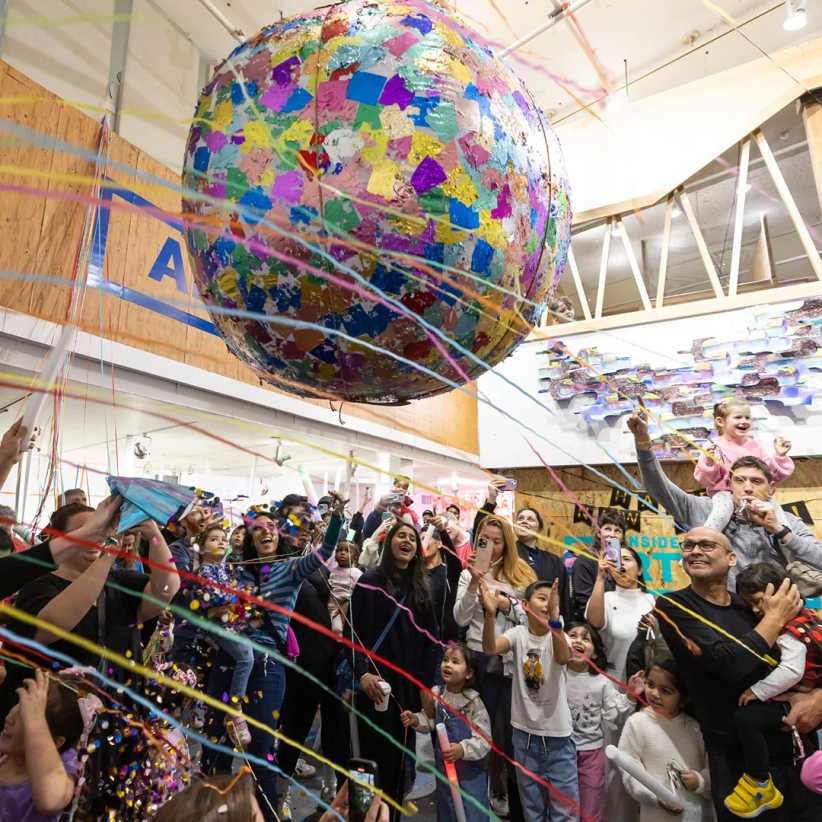Did you know that crocs actually parent? That’s right—according to Mark Norrell, the curator of the American Natural History Museum’s newest exhibit, “Crocs: Ancient Predators in a Modern World,” crocodilians have an “extensive parental care system,” with females helping babies out of their nests, and certain species even keeping a communal nursery. This is just one of the many surprising facts that you will learn about crocodilians—a group that includes crocodiles, alligators, caimans, and gharials—at the AMNH’s newest exhibit opening on Saturday, May 28.
You’ll also have the chance to get up-close and personal with real live crocs, including the Siamese crocodile (one of the world’s most endangered species), the West African dwarf crocodile, and the Central African slender-snouted crocodile—plus several surprisingly cute American alligator hatchlings.
Crocs and their ancestors have been on earth for nearly 200 million years. The exhibit traces their extensive evolutionary history, while establishing their continued relevance in the modern world with a fascinating look at research into certain biological characteristics that may have medical benefits for humans. For example: Certain blood proteins from crocs could be used to fight antibiotic-resistant infections!
[gravityform id=”14″ title=”false” description=”false” ajax=”true”]
Kids will get a kick out of seeing the live crocs, in addition to the four life-sized dioramas—especially the massive sculpture of Gomek, the largest saltwater crocodile ever exhibited in the Western hemisphere. The exhibit is also filled with plenty of fun interactives, covering everything from determining the difference between an alligator and a crocodile (hint: Are their teeth inside or outside their mouth?), and touchable fossils.
Through its nuanced exploration of the world of crocs, the exhibit works to dispel misconceptions about the animals’ low intelligence and aggressive tendencies–they’re smarter and not quite as bloodthirsty as you think. Tracing crocodilians’ evolutionary history and their many surprising qualities, “Crocs” is a fascinating dive into the worlds of these of these ancient reptiles with elements that will delight young and old!

